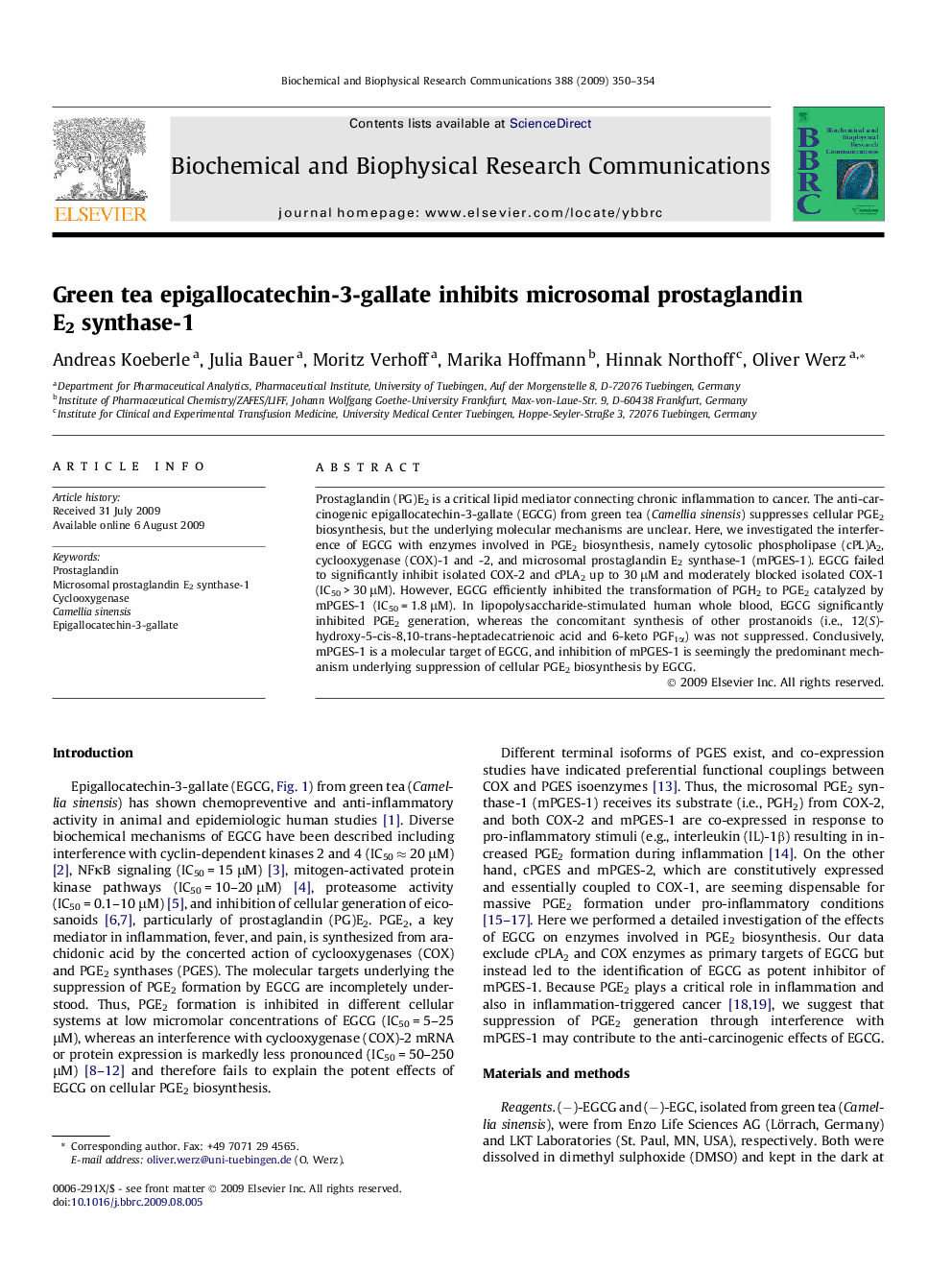| Article ID | Journal | Published Year | Pages | File Type |
|---|---|---|---|---|
| 1933049 | Biochemical and Biophysical Research Communications | 2009 | 5 Pages |
Prostaglandin (PG)E2 is a critical lipid mediator connecting chronic inflammation to cancer. The anti-carcinogenic epigallocatechin-3-gallate (EGCG) from green tea (Camellia sinensis) suppresses cellular PGE2 biosynthesis, but the underlying molecular mechanisms are unclear. Here, we investigated the interference of EGCG with enzymes involved in PGE2 biosynthesis, namely cytosolic phospholipase (cPL)A2, cyclooxygenase (COX)-1 and -2, and microsomal prostaglandin E2 synthase-1 (mPGES-1). EGCG failed to significantly inhibit isolated COX-2 and cPLA2 up to 30 μM and moderately blocked isolated COX-1 (IC50 > 30 μM). However, EGCG efficiently inhibited the transformation of PGH2 to PGE2 catalyzed by mPGES-1 (IC50 = 1.8 μM). In lipopolysaccharide-stimulated human whole blood, EGCG significantly inhibited PGE2 generation, whereas the concomitant synthesis of other prostanoids (i.e., 12(S)-hydroxy-5-cis-8,10-trans-heptadecatrienoic acid and 6-keto PGF1α) was not suppressed. Conclusively, mPGES-1 is a molecular target of EGCG, and inhibition of mPGES-1 is seemingly the predominant mechanism underlying suppression of cellular PGE2 biosynthesis by EGCG.
